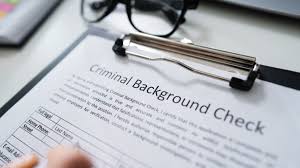
The Disclosure and Barring Service (DBS) check is an essential tool for ensuring that individuals working in sensitive environments are suitable for their roles. While DBS checks are often associated with employers requesting them on behalf of their staff, individuals can also apply for their own DBS check, especially if they are self-employed, volunteers, or need to prove their criminal record status. This article will explain where and how to apply for an individual DBS check, the supporting documents required, why these checks are necessary, and how to avoid potential fraud.
What is an Individual DBS Check?
An individual DBS check is a background screening process carried out by the Disclosure and Barring Service in the UK. It reveals any criminal history, cautions, or convictions that may exist in an individual’s record. These checks are especially important for people working or volunteering with vulnerable groups, such as children or adults in care, as well as for individuals in positions of trust, such as teachers, healthcare workers, or personal trainers.
Why Do You Need an Individual DBS Check?
There are several reasons why someone might need an individual DBS check:
Self-Employment: Individuals in self-employed roles such as freelance tutors, private caregivers, or childminders may need to demonstrate their suitability for working with vulnerable people. An individual DBS check provides reassurance to clients and families about your trustworthiness.
Volunteering: Many voluntary roles, especially those in education, healthcare, and community service, require a DBS check to ensure the safety of those you will be helping.
Peace of Mind: Some individuals may apply for a DBS check to be fully aware of their own criminal record and to share this with potential employers or organizations as proof of their clean record.
Employability: In competitive industries where safety and trust are essential, having a DBS certificate can improve your employability by showcasing your commitment to transparency.
Where to Apply for an Individual DBS Check
To apply for an individual DBS check, you need to apply online or through a responsible organization. Here’s how you can get started:
Basic DBS Check: Individuals can directly apply for a Basic DBS check through the official government website or a registered third-party provider. This check reveals only unspent convictions and cautions, making it suitable for most roles not involving vulnerable groups.
Enhanced DBS Check: For an Enhanced DBS check, which is required for roles involving close work with vulnerable individuals, the application must be made by an employer or sponsoring organization. Self-employed individuals cannot apply for this level of check on their own but may need to request one via a trade association or umbrella body authorized to handle DBS applications.
How to Apply for an Individual DBS Check
The application process for a Basic DBS check is straightforward and can be done online. Here’s how to apply:
Visit the Government Portal or Third-Party Provider: Head to the official DBS service page or a registered third-party provider’s website.
Create an Account: You will need to register with your basic personal information, such as name, date of birth, and address history for the past five years.
Complete the Application Form: Fill out the required details, including your previous addresses and employment history. You may also be asked about your role and the purpose of the DBS check.
Submit Supporting Documents: Provide proof of identity by submitting the necessary supporting documents.
Pay the Fee: Once your application is complete, you’ll be prompted to pay the application fee, which for a Basic DBS check is usually around £23. Fees for enhanced checks are handled by the employer or umbrella body.
Receive Your DBS Certificate: After processing, your DBS certificate will be sent to your home address.
Supporting Documents Required for an Individual DBS Check
You will need to provide specific documents to prove your identity when applying for a DBS check. Generally, the required documents fall into three categories:
- Proof of Identity: A passport, driving license, or birth certificate.
- Proof of Address: Utility bills, bank statements, or council tax statements (issued within the last three months).
- Proof of Right to Work (if applicable): For non-UK nationals, this could include a visa, biometric residence permit, or Home Office documentation.
It’s important to ensure that your documents are valid and up to date, as incorrect documentation can lead to delays in the application process.
How to Avoid Potential Fraud When Applying for a DBS Check
Unfortunately, there are fraudulent services that take advantage of people applying for DBS checks. To stay safe and avoid scams:
Use Official or Trusted Sites: Always apply for your DBS check through the official government website or a verified third-party provider. Be cautious of websites that charge significantly more than the official fee or ask for unnecessary personal information.
Beware of Scams: Be suspicious of unsolicited offers for a “faster” DBS check service. While some third-party providers can speed up the process, the official processing times are usually reliable.
Keep Personal Data Safe: Never share your personal information, including passport details or financial information, with unknown or unverified sources. Double-check the legitimacy of any company or organization requesting a DBS check on your behalf.
Check Certificates: If you receive a DBS certificate, ensure its authenticity by cross-referencing the certificate number on the DBS online tracking system.
An individual DBS check is a critical step for those looking to work in self-employed roles, volunteer positions, or any job that requires trust and responsibility. Knowing where to apply, the necessary supporting documents, and how to avoid fraud will ensure a smooth and secure application process. By obtaining a DBS check, individuals can enhance their credibility and provide reassurance to employers, clients, and the people they serve.